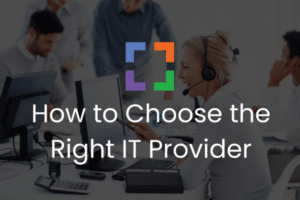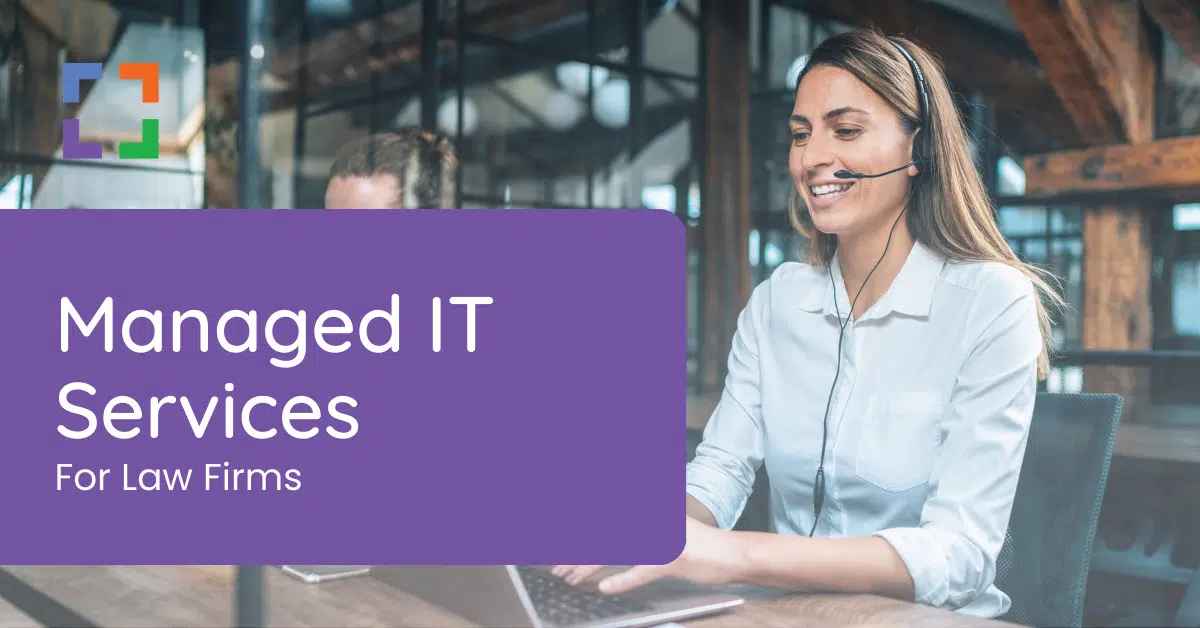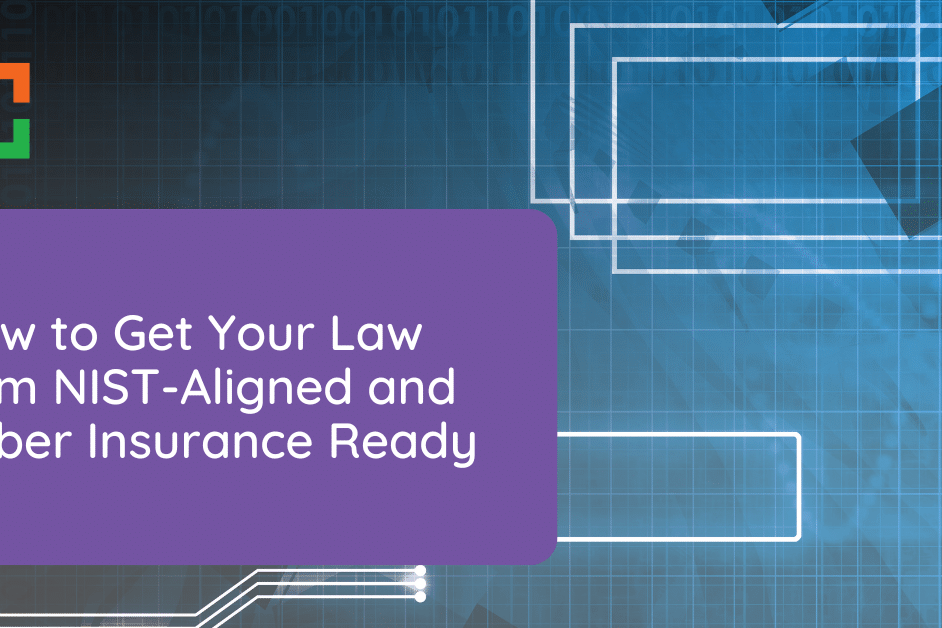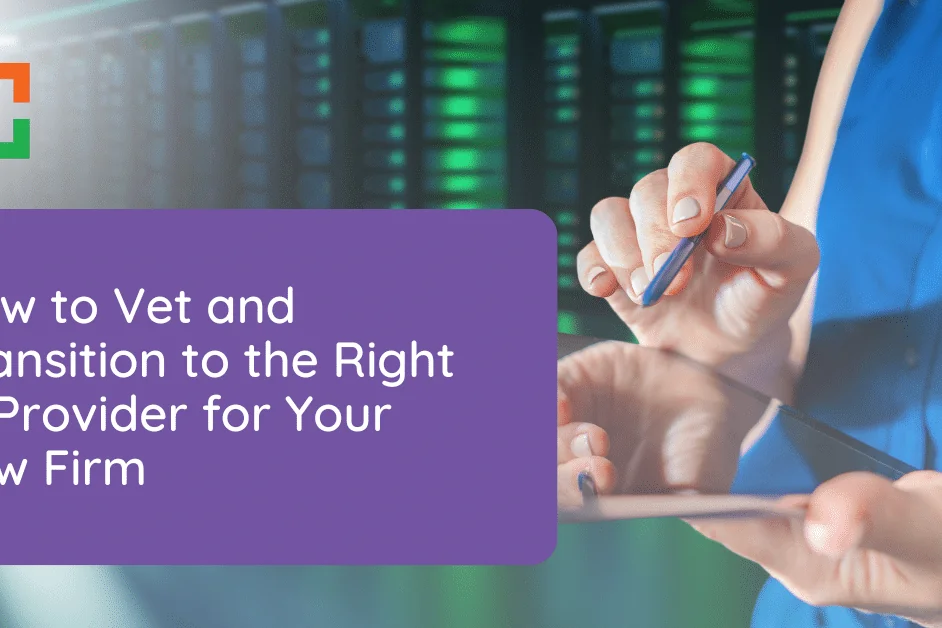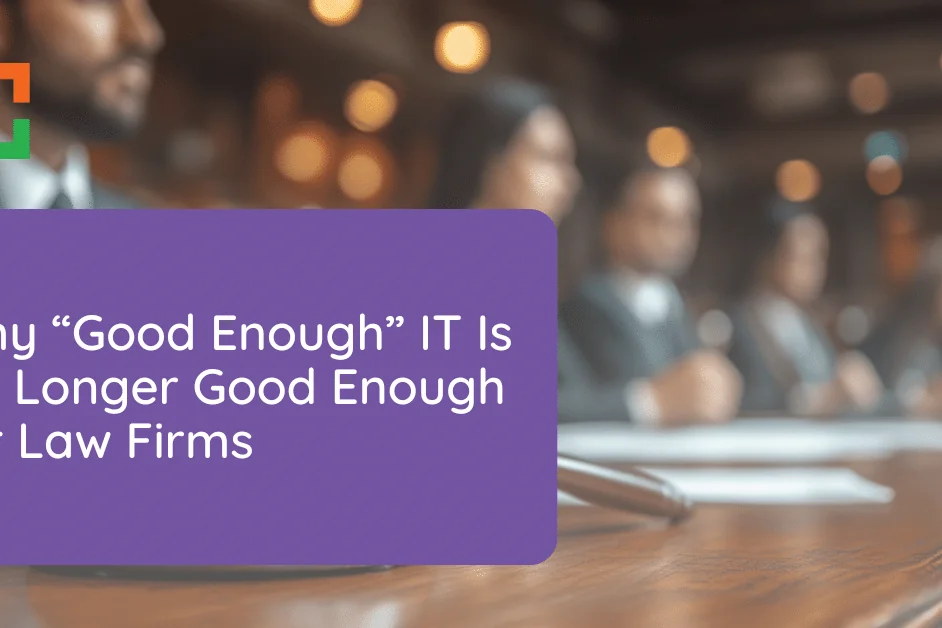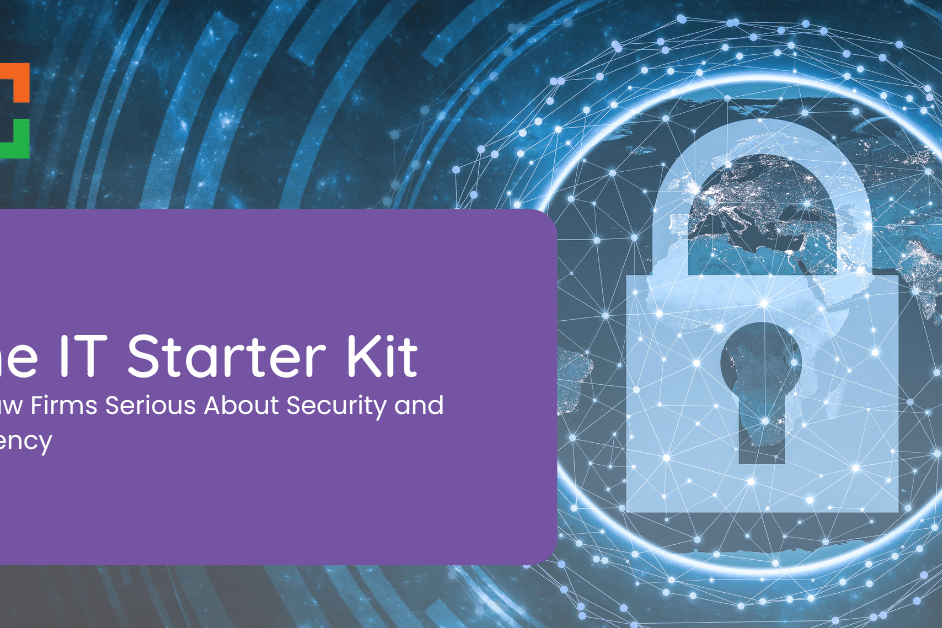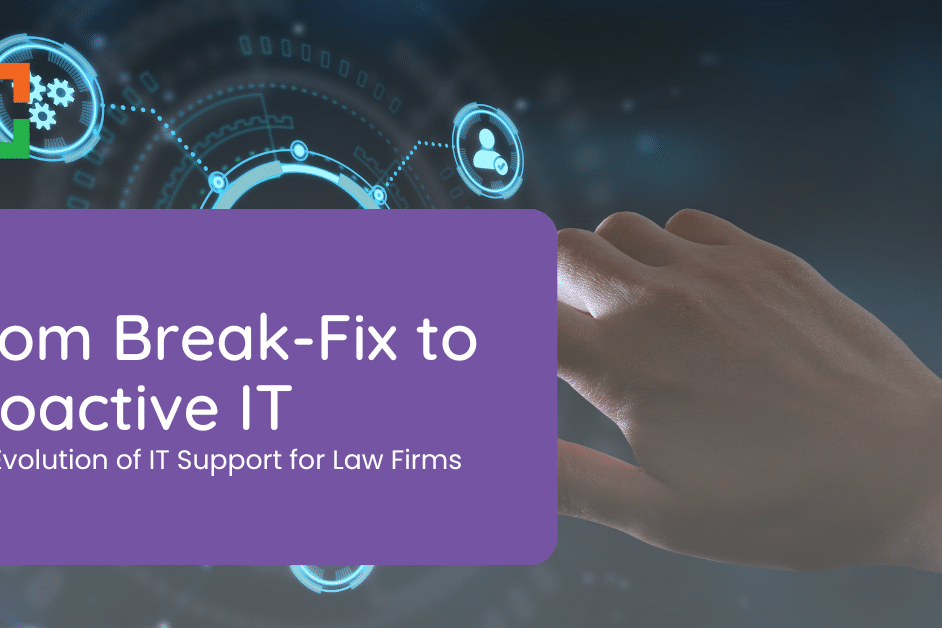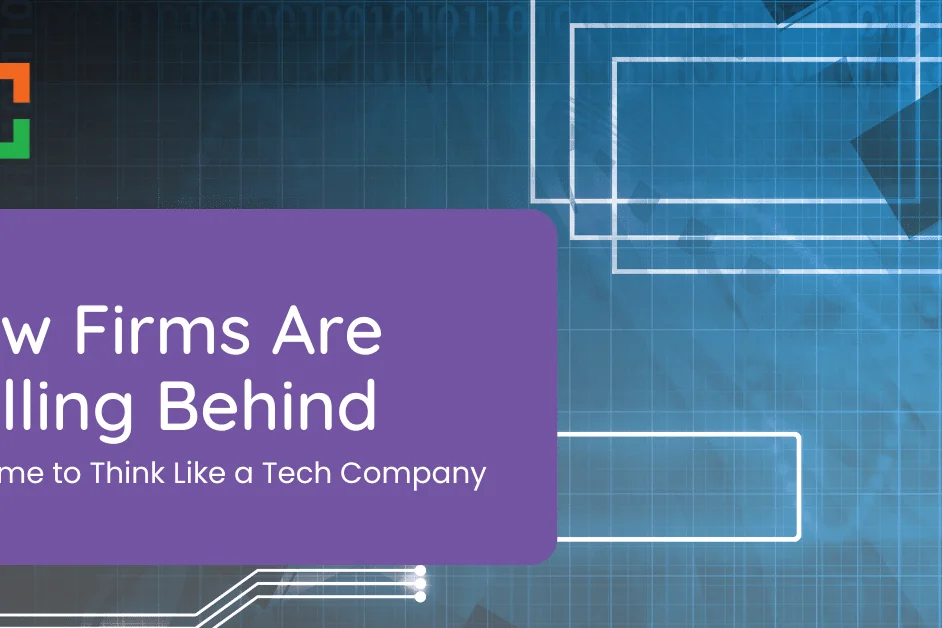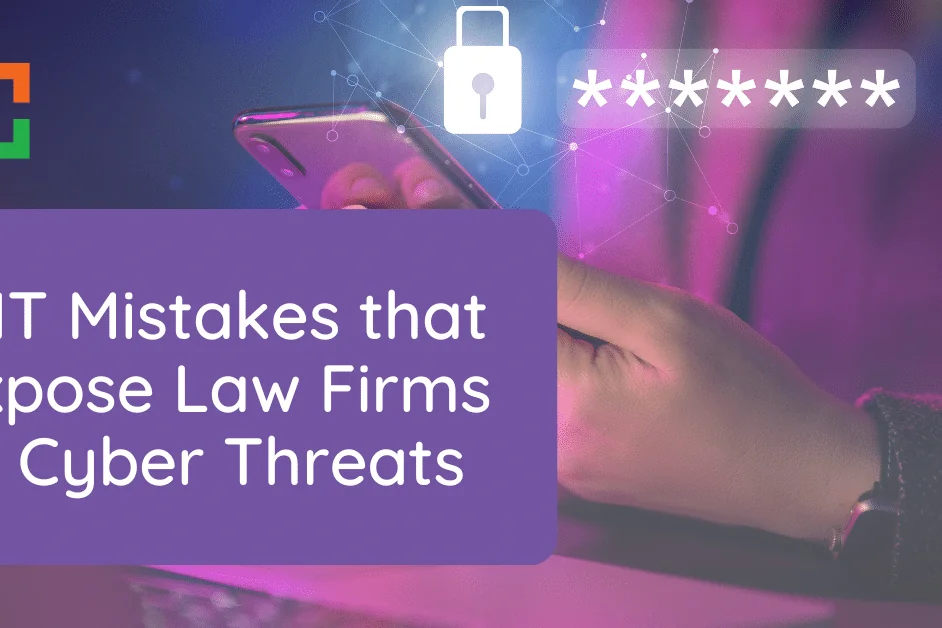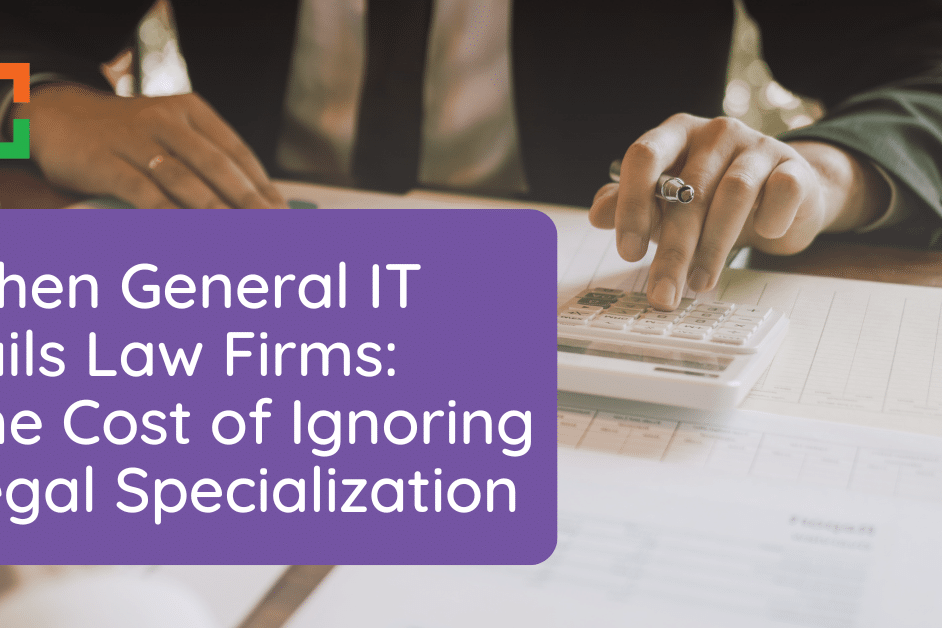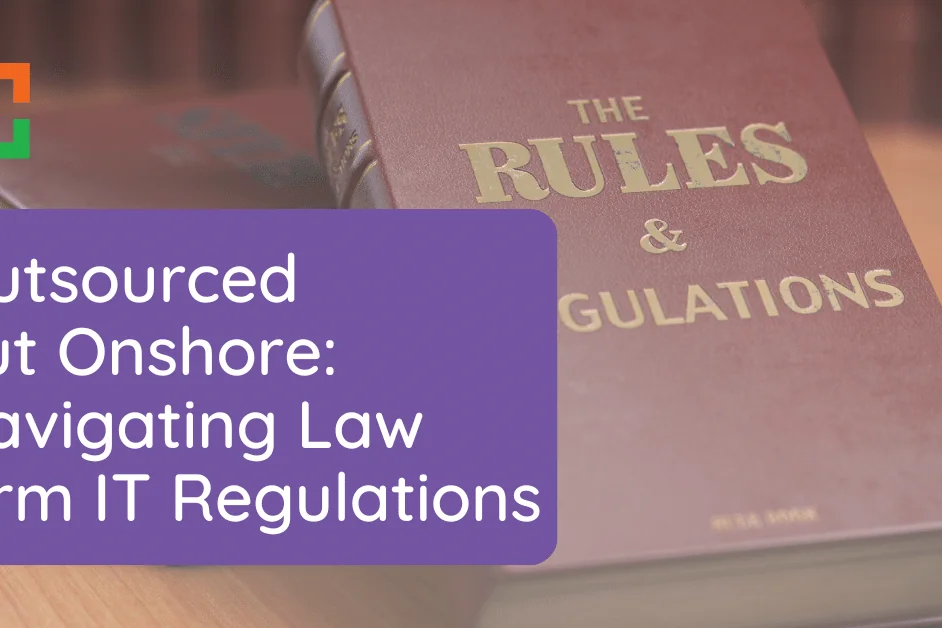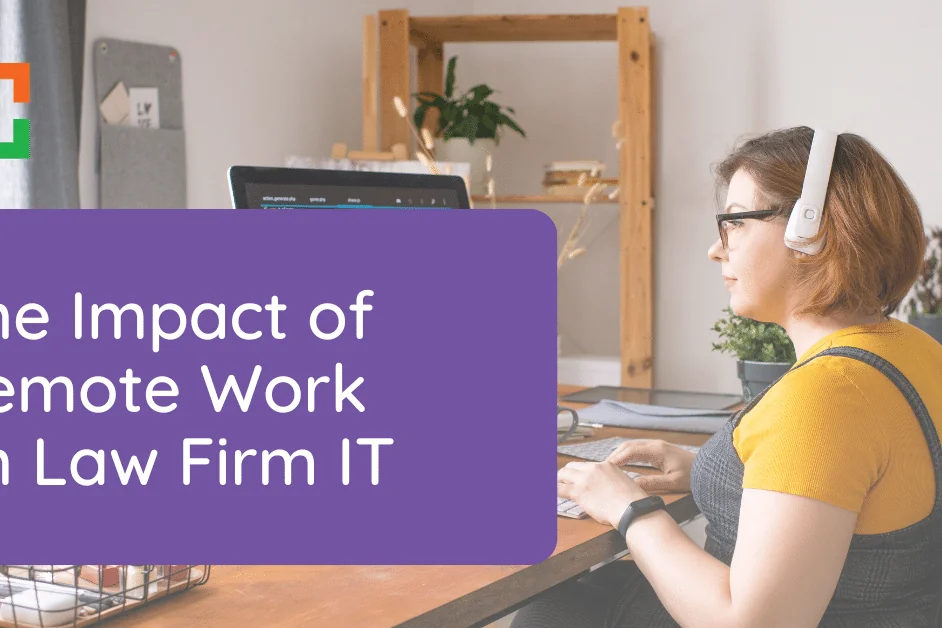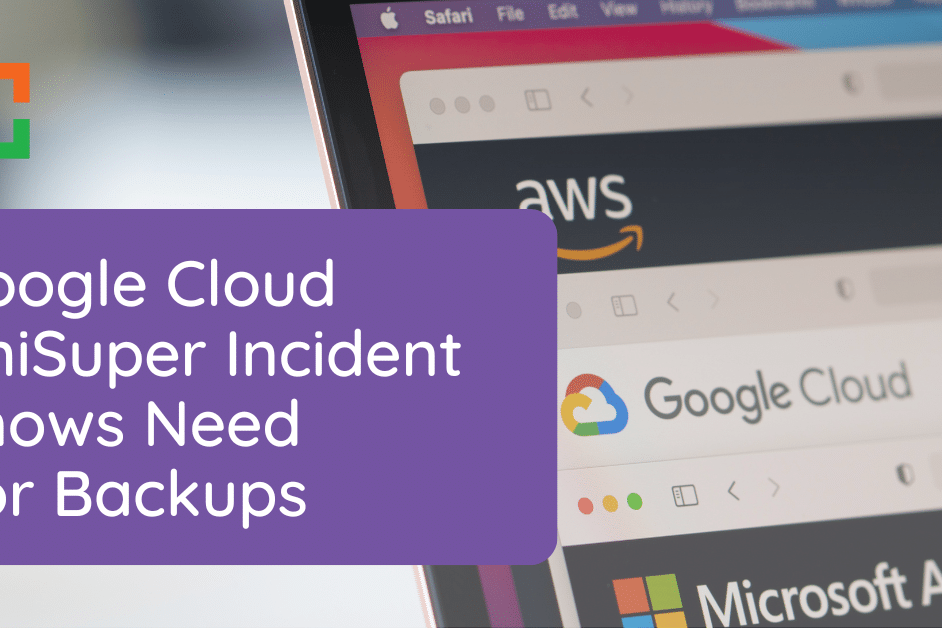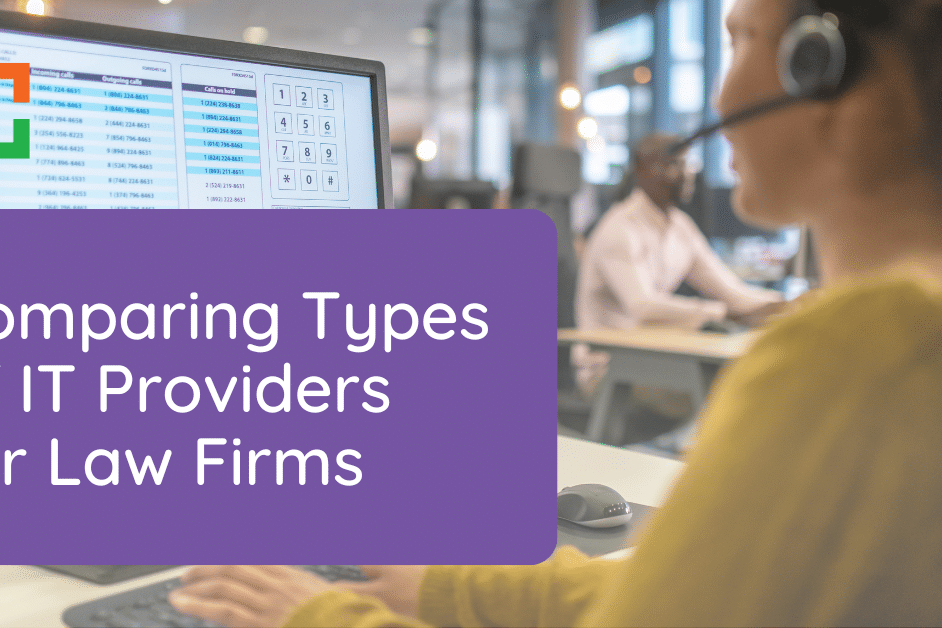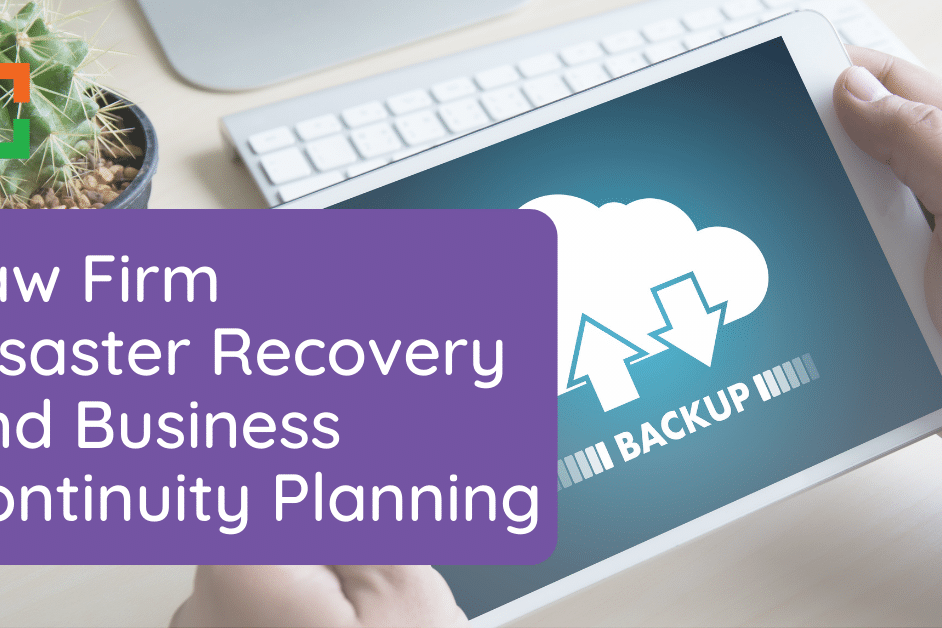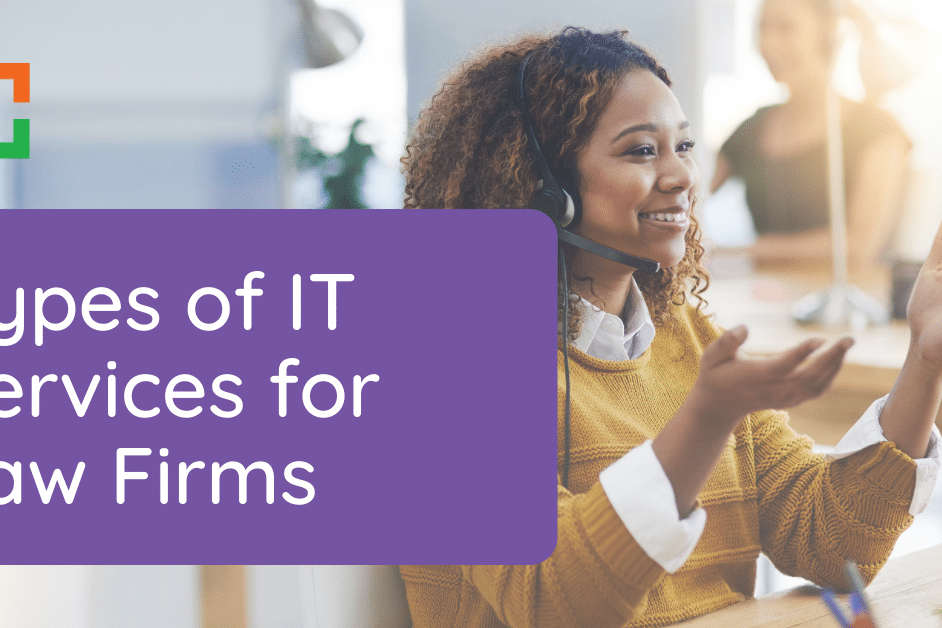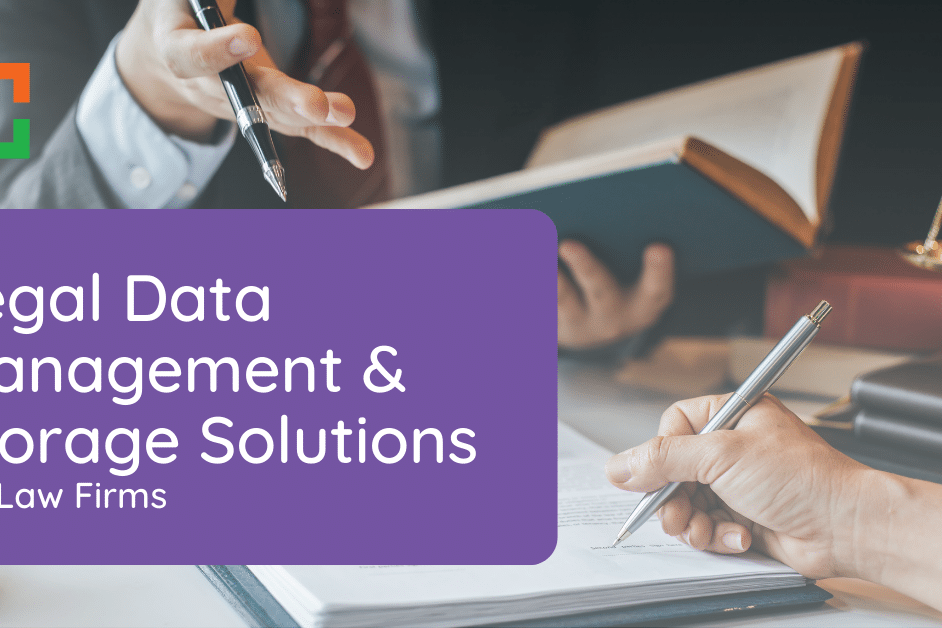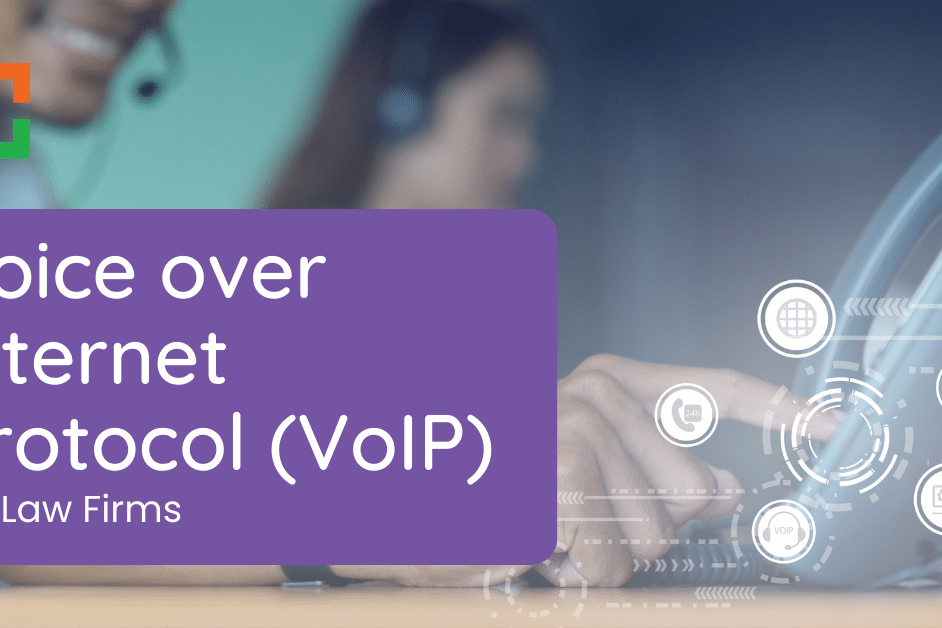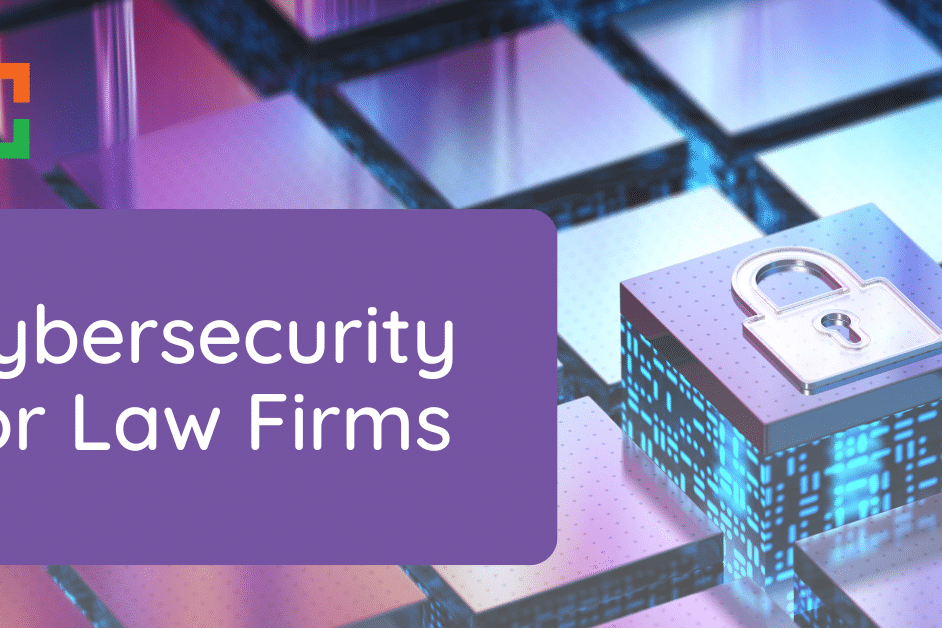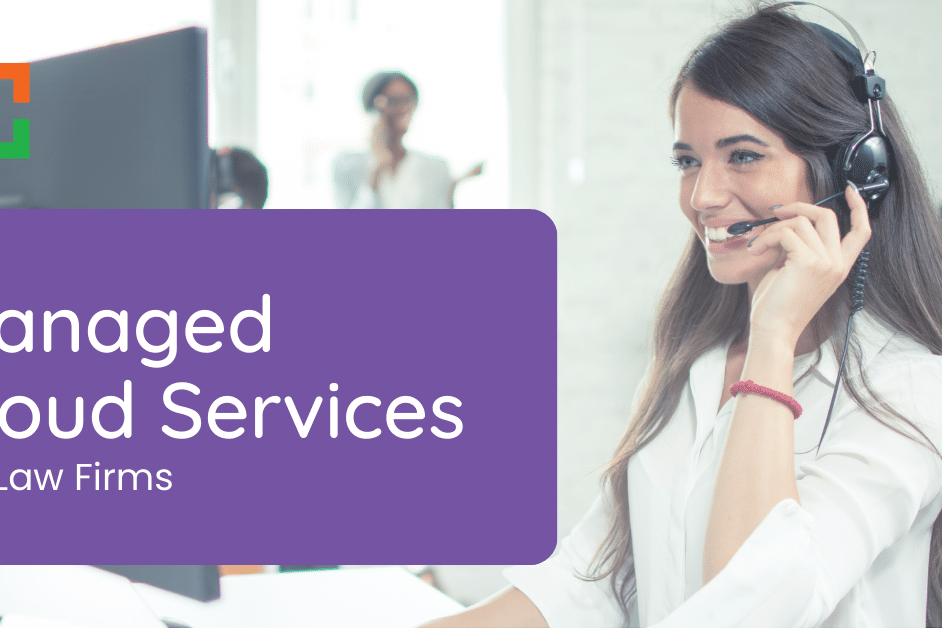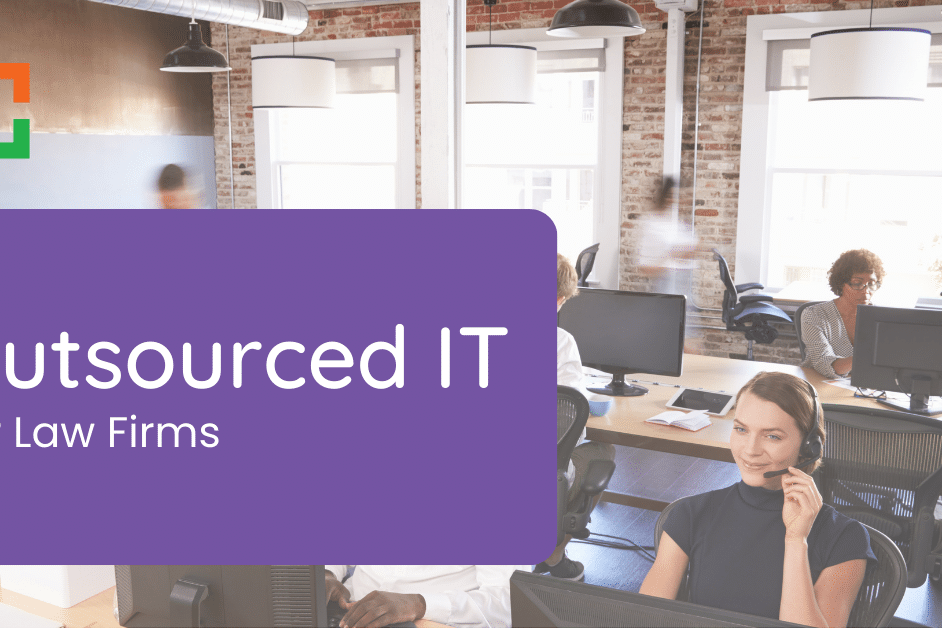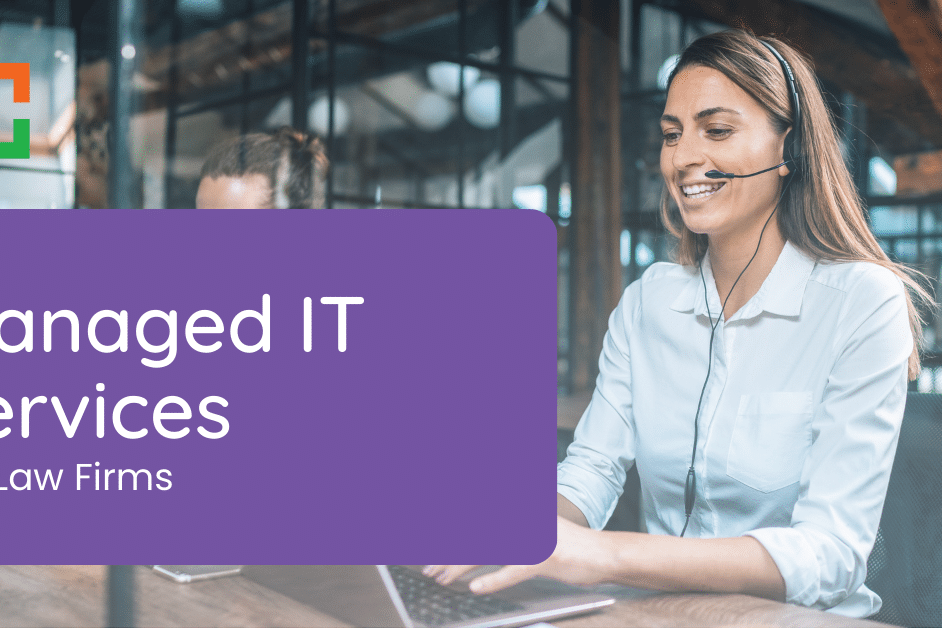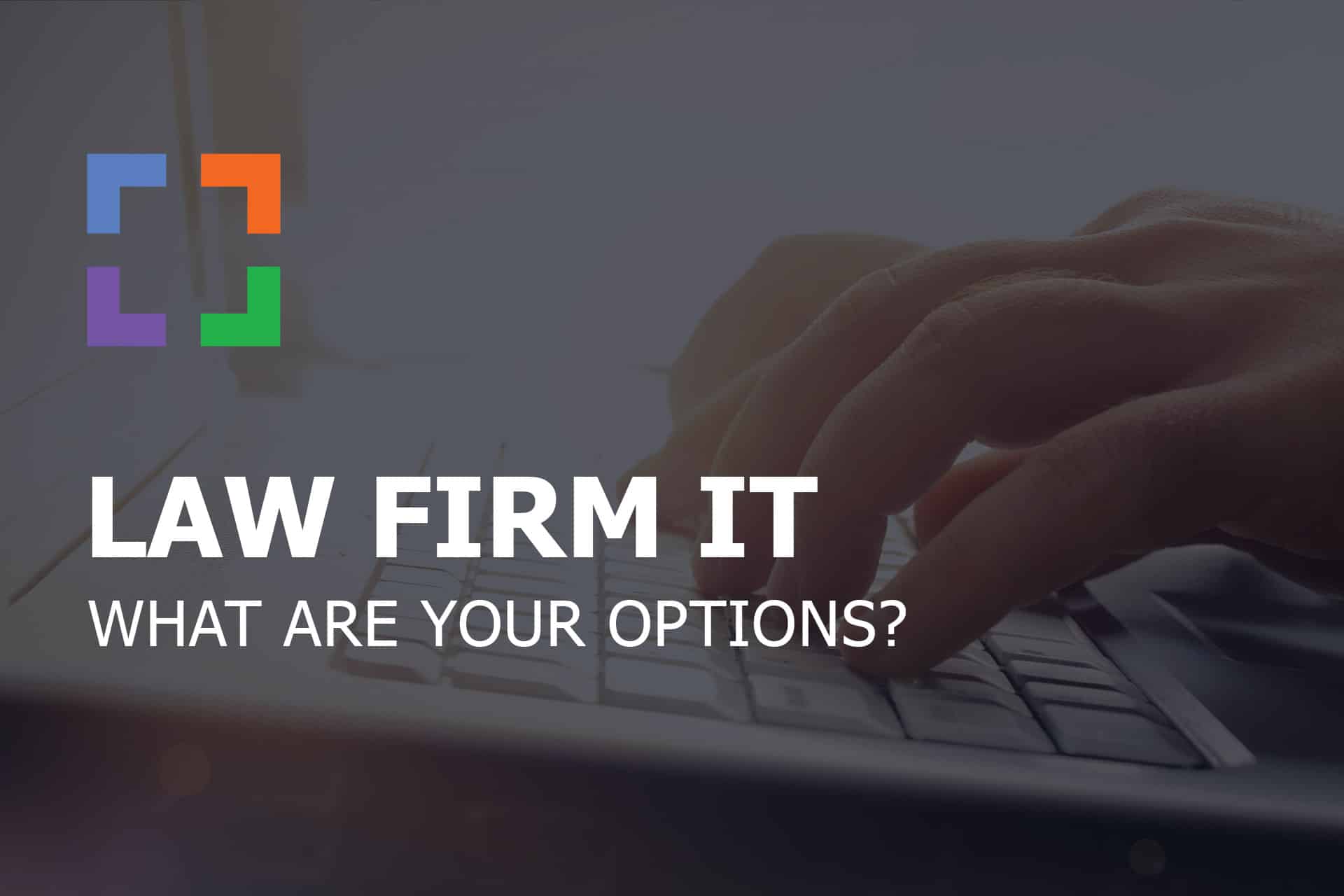How to Choose the Right IT Provider – A Guide for Law Firms
This article serves as a comprehensive guide for law firms looking to choose the right IT provider.
It offers detailed insights and practical advice, ensuring that law firms can make informed decisions that align with their specific technological and legal requirements.
The guide is structured as a checklist, with considerations like cloud services tailored for law firms, legal-centric cloud storage options, and web services like website design and hosting.
This format makes it an accessible and valuable resource for law firms navigating the complexities of IT solutions in the legal industry.
In This Article
- Introduction to IT Support for Law Firms
- Understanding Your Law Firm's IT Needs
- Key Considerations in Choosing an IT Provider for Your Law Firm
- How to Ask Potential IT Providers Questions
- How to Choose an IT Provider for Your Law Firm
- Frequently Asked Questions — Choosing an IT Provider for Your Law Firm
Introduction to IT Support for Law Firms
In the dynamic world of legal services, Information Technology (IT) has become a cornerstone of efficiency and security.
For law firms, the right IT support goes beyond basic tech maintenance; it’s an essential pillar supporting every aspect of their operations. From safeguarding sensitive client information to ensuring seamless case management, IT is integral in upholding the high standards expected in legal practice.
However, the stakes are high, as inadequate IT support can lead to severe consequences. Issues like data breaches, system downtimes, and non-compliance with legal standards can not only disrupt operations but also damage a firm’s reputation and client trust.
This introduction highlights the critical importance of choosing an IT provider wisely, underscoring that a firm’s ability to protect client data and maintain uninterrupted operations heavily depends on its IT infrastructure.
As we delve into this guide, we’ll explore how to navigate the complexities of selecting an IT provider that meets the specific needs and challenges of a modern law firm.
Related – IT Support for Law Firms: Outsourcing your IT needs allows your firm to better focus on legal-centric work. Learn how.
Understanding Your Law Firm's IT Needs
Identifying your law firm’s specific IT needs is crucial for selecting the right provider.
This step involves a thorough assessment of your firm’s current technology landscape and future goals. Start by evaluating your existing IT infrastructure: what’s working well, and what’s not?
Consider factors like network stability, data storage capacity, and the efficiency of your case management systems.
Next, think about your firm’s growth trajectory and how your IT needs might evolve. Will you need more robust data security measures? Are you planning to expand your remote work capabilities? It’s also vital to consider compliance with legal industry regulations.
Understanding these needs ensures that you select an IT provider capable of not only meeting your current requirements but also scaling with your firm’s growth and adapting to the changing legal technology landscape.
Would You Rather: Serve Clients or Manage IT?
Use Uptime Practice Next for:
- Unlimited IT Support
- Legal Software Consultation
- Cloud Storage
- Security Protection
- Data Backups
- and More!
Key Considerations in Choosing an IT Provider for Your Law Firm
The journey to selecting an IT provider for a law firm is a critical and nuanced process, requiring careful consideration of various factors that directly impact the firm’s operational efficacy and security.
The right IT partnership can be a significant catalyst for a firm’s success, offering not just technical support but strategic value. This section delves into the essential considerations law firms must weigh when choosing an IT provider.
These considerations are not just checkboxes but vital components that contribute to a seamless and secure legal practice, enabling law firms to focus on their core objective – delivering excellent legal services.
Is the IT Service Provider Well-Regarded in the Industry?
When choosing an IT service provider for a law firm, it’s crucial to select one that is established and reputable in the industry.
New IT firms often emerge, with some rebranding themselves to stay competitive. To ensure reliability and quality, verify that the provider has recognition from respected entities like the Inc. 5000 list, the American Bar Association, or state bar associations.
A provider that is not well-known or only recognized in a limited geographical area could pose risks such as slow response times, inadequate support, system downtime, or even business closure.

Uptime Practice was a true miracle when the pandemic struck. We moved to Uptime Practice and were working immediately.
Todd Tracy – The Tracy Law Group, PLLC
Are They ONLY Legal-Focused?
When selecting an IT service provider for a law firm, it’s beneficial to focus on those specializing in the legal industry.
Many IT providers offer services across various sectors, but might lack the specific knowledge of legal ethics, compliance requirements, and legal-specific software. Therefore, prioritize providers dedicated to serving law firms.
Be cautious of generalist providers claiming legal specialization; a closer inspection often reveals they serve multiple industries. If a provider caters to diverse sectors like retail or healthcare, it’s advisable to continue your search for one more attuned to the unique needs of law firms.
How Many Legal Clients Do They Support?
When evaluating the client base of an IT service provider for your law firm, it’s important to verify their experience with legal clients.
Some providers may claim to service numerous law firms, even dedicating sections of their website to the legal industry. However, these claims should be thoroughly vetted.
As a law firm with distinct needs, ensure that your chosen IT service provider has a substantial and verifiable client base in the legal sector, ideally servicing hundreds of law firms, to guarantee they understand and can cater to your specific requirements.
Related – Managed IT Services for Law Firms: Explore Managed IT Services for Law Firms: Boost efficiency, enhance security, and ensure compliance with specialized IT support.
How Frequently Do They Onboard New Law Firms?
It’s insightful to ask an IT service provider not just about their existing law firm clientele, but also how often new firms are onboarding with them each month. This metric is more than just a number; it reflects the provider’s expertise and efficiency in integrating law firms into their system.
Regularly onboarding a significant number of law firms suggests a well-honed process for transitioning a firm’s critical components, like applications, databases, and email systems, to the IT provider’s infrastructure.
This consistency is key in ensuring a smooth and reliable transition for your firm’s IT needs.
Do They Provide Legal-Centric Cloud Storage Options?
Inquire whether the IT service provider offers specialized cloud storage options designed for legal data storage needs, rather than just generic solutions like SharePoint.
Legal-centric cloud storage should offer enhanced security features, compliance with legal data handling regulations, and integration capabilities with legal software.
This specificity is crucial for the efficient management and protection of sensitive legal documents. The problem with basic cloud storage is law firms often find it insufficient for their needs.
Do They Manage Your Cybersecurity and Antivirus End-to-End?
It’s crucial to ensure that your IT service provider manages cybersecurity comprehensively, including antivirus protection.
This means they should not only secure the servers where your data and applications are hosted but also actively monitor and manage antivirus protection for your local devices, including desktops and laptops.
Effective cybersecurity management by your IT provider is about more than just server-level protection; it extends to every aspect of your firm’s IT infrastructure. This holistic approach to cybersecurity is a key part of consolidating IT management under one provider, enhancing overall security and efficiency.
Some providers may overlook the security of local devices, leaving a critical gap in your firm’s cybersecurity landscape.
How Will Your IT Service Provider Handle Subpoenas Relating to Your Firm’s Data?
It’s essential that your IT service provider has a well-defined and documented policy for handling subpoenas related to your law firm’s data.
An experienced IT provider, especially one with a focus on legal services, should have a clear understanding of the gravity of such legal requests. Instead of hastily reacting to legal demands, a reliable provider will have established procedures for notifying your firm and appropriately responding to subpoenas.
This approach ensures that your firm’s data is handled in a legally compliant and secure manner, maintaining client confidentiality and trust.
What Type of Help Desk and Support System Does the IT Service Provider Utilize?
Effective support for the technological needs of law firms requires more than just a basic call center.
A sophisticated IT service provider will have an advanced system to manage and promptly address support calls. This includes a well-structured help desk with skilled technicians and a system designed for efficiency, such as an Automatic Call Distributor (ACD).
This system should ideally operate on a First-In, First-Out (FIFO) basis, providing real-time insights into hold times and call volumes. The presence of such a system is a hallmark of a capable and reliable IT service provider, distinguishing them from less sophisticated operations.
It ensures that your firm experiences minimal wait times and receives support from highly qualified personnel, rather than just a basic level one support representative.
How Many Support Staff Do They Have?
The size of an IT service provider’s support staff is a telling indicator of their capacity to meet the needs of your law firm.
Smaller providers may have a limited number of technical personnel, encompassing both support and onboarding staff. If a provider is vague or evasive about the size of their support team, it may suggest inadequacy for your firm’s needs.
Conversely, a well-equipped provider should have a robust team, including multiple onboarding specialists and a significant number of dedicated, full-time help desk and support staff.
This ensures comprehensive and prompt IT services for law firms.
Do They Offer Additional Web Services?
Check if the IT provider goes beyond basic IT support to include additional web services crucial for a modern law firm, such as website design and hosting.
These services are important for maintaining a professional online presence, which is vital in today’s digital landscape. A provider that offers comprehensive web solutions can help streamline your firm’s online strategy, ensuring consistency and quality in all digital interactions.
Related – Best Law Firm Websites: One way to measure and align your expectations for website design is to evaluate other law firms. Here’s a list of the best ones.
Does Your IT Service Provider Facilitate Compliance and Security?
Law firms have unique compliance requirements, whether it’s HIPAA, PCI, SOX, or general data security mandates. A capable IT service provider should not only maintain high levels of security but also offer tools and options to help your firm remain compliant.
These include:
- Two-Factor Authentication support.
- Restricted Access Options to control login parameters.
- Policy-based Email Encryption for secure communication.
- Email Archive, Retention, and Legal Hold for data management.
- Email Disclaimers for legal protection.
- Onsite Cloud Backup for data redundancy.
- Military-grade Encryption for top-level data security.
- 24 x 7 Network Security Monitoring.
- Strict Password and Access Policies.
Selecting a provider that offers these features is crucial for meeting compliance needs and ensuring data security.
Is a Long-Term Contract Required by Your IT Service Provider?
The flexibility of IT services is key for law firms, allowing for adjustments in staff, storage, and remote work capabilities.
It’s counterproductive if an IT service provider insists on long-term contracts of one, three, or five years, as this can hinder your firm’s agility. You should seek a provider offering month-to-month terms, ensuring the flexibility to modify your plan as needed or to change providers without being locked into a lengthy commitment.
This flexibility is essential for a law firm’s evolving needs.
Do They Offer Cloud Services Tailored to Law Firms?
It’s essential for law firms to determine if the IT service provider offers cloud services that are specifically tailored for legal practices.
These specialized services should not only align with the unique workflow and case management needs of law firms but also ensure compliance with legal industry standards and data privacy laws.
A provider experienced in the legal sector will understand these nuances, offering solutions that go beyond generic cloud offerings.
When Contacting the Help Desk of Your IT Service Provider – Who Responds?
For a law firm operating under tight deadlines and high stakes, the quality of support received from an IT service provider’s help desk is critical.
Some providers use entry-level “level one” technicians for initial call handling, who may only be equipped to manage basic issues like password resets. More complex problems often require escalation to higher-level engineers.
This can be especially challenging if the provider serves multiple industries and lacks expertise in legal-specific software, leading to inadequate responses and delays. The efficiency and expertise of the support staff are vital for a law firm’s seamless operation.
Can the IT Provider Effectively Support and Host Your Legal Software?
This entails more than just providing server space; it involves a deep understanding of and capability to support specialized legal applications.
Your chosen IT provider should not only reliably host your firm’s software but also offer comprehensive support for applications central to your practice, such as practice management, document management, and billing/accounting software.
A proficient IT service provider will manage not just the hosting but also the maintenance aspects, like applying security patches and software updates. This is vital for the smooth functioning of your firm’s technology infrastructure, enabling your team to focus on legal work rather than IT issues.
Furthermore, a strong IT provider should have established relationships with major legal software publishers, ensuring they have prompt access to specialized support when needed.
Where applicable, the provider should have certifications in specific legal applications, demonstrating their expertise and commitment to supporting those tools effectively. Be wary of providers who adopt a ‘best-effort’ stance towards third-party software support. Such an approach often leads to situations where neither the cloud provider nor the software company takes responsibility for issues, leaving your firm in a challenging position.
This expanded support is not just a convenience; it’s a critical component in ensuring that your firm’s IT infrastructure is reliable, secure, and conducive to your legal practice.
In Love with a Server-Based Software?
Use Uptime Practice to Host It!
- Get Your Firm's Software to the Cloud
- Access it From Anywhere
- Avoid Server Maintenance
- Pursue a Virtual Law Firm
- Get Included Support
How to Ask Potential IT Providers Questions
When engaging with potential IT providers, it’s crucial to ask targeted, informed questions.
Begin by outlining your firm’s specific IT needs and challenges. Then, craft questions that directly address these areas, focusing on the provider’s experience with law firms, their approach to data security, compliance, and support services.
Inquire about their client base, particularly in the legal sector, and request case studies or testimonials. Also, discuss their policies on scalability, data backup, and disaster recovery.
Open-ended questions can provide insight into their commitment to customer service and innovation. This approach ensures you gain a thorough understanding of each provider’s capabilities and how well they align with your firm’s needs.
Do:
- Do Prepare a List of Specific Questions: Tailor your questions to address your law firm's particular needs, including compliance, security, and software support.
- Do Ask About Industry Experience: Inquire about their experience with law firms and legal-specific challenges.
- Do Discuss Data Security and Compliance: Emphasize the importance of data protection and ask about their security protocols and compliance measures.
- Do Inquire About Support and Response Times: Understand their approach to customer support, including availability and escalation processes.
- Do Request Client References: Ask for testimonials or case studies from other law firms they've worked with.
Don't:
- Don't Ask Only General Questions: Avoid questions that are too broad and won't give you a clear insight into how the provider can meet your specific needs.
- Don't Overlook the Details of the Contract: Neglecting to discuss contract terms, such as length and flexibility, can lead to challenges later.
- Don't Forget to Discuss Scalability: Failing to ask about the provider's ability to scale services as your firm grows can limit your firm's future options.
- Don't Ignore the Cultural Fit: Ensure that their company culture and communication style align with your firm's values and expectations.
- Don't Rush the Process: Take your time in the decision-making process to ensure you choose the most suitable provider.
How to Choose an IT Provider for Your Law Firm
Choosing the right IT provider is a pivotal decision for any law firm, as it can significantly impact both day-to-day operations and long-term success.
This section provides a structured, step-by-step approach to help law firms navigate through this crucial process. From assessing specific IT needs to making the final decision, each step is designed to ensure a thorough evaluation of potential IT providers.
This methodical approach will guide law firms in selecting an IT partner that not only meets their current requirements but also supports their future growth and adapts to evolving technological landscapes.
- Assess Your Firm’s IT Needs: Clearly define what your law firm requires in terms of IT support, including specific legal software, data security, and compliance needs.
- Research Potential Providers: Gather a list of IT providers that specialize in legal services. Look for reviews, testimonials, and case studies, especially from other law firms.
- Compare Services and Expertise: Evaluate each provider based on their services, expertise in the legal field, and their ability to meet your specific requirements.
- Inquire About Security and Compliance: Make sure the providers follow stringent security protocols and can help your firm stay compliant with legal industry standards.
- Discuss Support and Maintenance: Understand the level of support offered, including response times, help desk availability, and ongoing maintenance.
- Consider Scalability and Flexibility: Ensure the provider can scale services as your firm grows and offers flexible contract terms.
- Request Proposals and Quotes: Ask for detailed proposals and cost estimates from the shortlisted providers.
- Review Contract Terms Carefully: Scrutinize the contract terms, paying special attention to the length of the contract, termination clauses, and any hidden costs.
- Make a Decision: Based on your thorough evaluation, choose the IT provider that best aligns with your firm’s needs and future objectives.
Frequently Asked Questions — Choosing an IT Provider for Your Law Firm
Investigate their history in the legal sector. Ask for references from other law firms they have serviced, and inquire about their familiarity with legal-specific software and compliance needs.
A competent IT provider should offer comprehensive security features including end-to-end encryption, regular security audits, and compliance with legal industry standards. They should also have a solid disaster recovery plan to safeguard against data breaches.
Yes, it is crucial. Confirm that the provider has experience with and can support the specific legal software your firm uses. Providers with specialized legal industry experience are likely to offer better support for these applications.
Scalability ensures that as your law firm grows or evolves, your IT infrastructure can adapt accordingly. Assess this by discussing the provider’s ability to handle increased workloads, additional users, and evolving technology requirements.
While cost is a significant factor, it should not be the sole deciding factor. Evaluate the overall value the provider brings in terms of expertise, security, service quality, and support.
Understand their backup frequency, data recovery procedures, and how they handle different data loss scenarios. Ensure that their practices align with the criticality of your firm’s data.
Look for providers offering comprehensive 24/7 support, with experienced technical staff who can respond quickly and effectively to your firm’s issues.
Many IT providers offer flexible contracting, including month-to-month options. It’s crucial to confirm this early in your discussions to ensure contractual flexibility.
They should be well-versed in legal regulations and offer tools and practices for data protection. Confirm that they regularly update their practices to remain compliant with evolving legal standards.
This depends on your specific needs. Local providers may offer more personalized service, while national providers could have more extensive resources. Consider the scale, scope, and specific requirements of your firm when making this decision.
Uptime Practice:
The IT & Cloud Platform for Law Firms.
Uptime Practice is a suite of Managed IT and cloud services, made exclusively for law firms.
Practice Next
Technology + Legal Software Support for Modern Law Firms
Practice Next is a suite of Managed IT, Legal Software Support, and Cloud Essentials, made just for law firms.
-
Practice Next is a suite managed IT, technology essentials and legal software support.
-
Practice Next includes unlimited IT and legal software support, Microsoft 365, legal-centric cloud storage and more.
-
Practice Next pairs great with cloud-based legal software such as Clio Manage, CosmoLex, MyCase and more.
Practice Go
Cloudify Your Legal App
Does your law firm already have a cloud strategy, but have one premise-based application still running on onsite servers? Practice Go is for you.
- With Practice Go, we effectively turn your desktop/server- based legal software into a cloud application (a Published App), freeing your firm from the limitations of traditional software.
- Practice Go can cloudify your PCLaw, Time Matters, Tabs3, ProLaw, Juris, QuickBooks and more.
Practice Foundation
Complete Private Cloud for Law Firms
If your law firm needs a central, secure cloud platform for all of your legal software, documents and data, Practice Foundation is for you.
-
Practice Foundation is an end-to-end cloud platform that will host all of your firm's applications and documents, and will optionally include Office 365 + unlimited IT support. Everyone in your firm logs into a Virtual Desktop where they'll find all of their apps and docs.
-
Practice Foundation works with PCLaw, Time Matters, Tabs3, ProLaw, Juris, QuickBooks, Timeslips, TrialWorks, Adobe Acrobat and more.
Not Sure Which Edition You Need?
No problem. Check out our quick Comparison Chart for Uptime Practice, or Get in Touch to talk with our sales team.

Dennis Dimka
As the founder and CEO of Uptime Legal Systems, I've had the privilege of guiding our company to become a leading provider of technology services for law firms.
Our growth, both organic and through strategic acquisitions, has enabled us to offer a diverse range of services, tailored to the evolving needs of the legal industry.
Being recognized as an Ernst & Young Entrepreneur of the Year Finalist and seeing Uptime Legal ranked among the Inc. 5000 list of fastest-growing private companies in America for eight consecutive years are testaments to our team's dedication.
At Uptime Legal, we strive to continuously innovate and adapt in the rapidly evolving legal tech landscape, ensuring that law firms have access to the most advanced and reliable technology solutions.
Related Posts
January 20, 2025
5 IT Mistakes that Expose Law Firms to Cyber Threats
September 26, 2024
Outsourced but Onshore: Navigating Law Firm IT Regulations
June 27, 2024
The Impact of Remote Work on Law Firm IT
May 29, 2024
The Real Value of Legal Specialty in IT Services
April 24, 2024
Comparing Types of IT Providers for Law Firms
February 28, 2024
Law Firm Disaster Recovery and Business Continuity Planning
February 22, 2024
Types of IT Services for Law Firms
February 8, 2024
Legal Data Management & Storage Solutions for Law Firms
January 9, 2024
VoIP for Law Firms
December 15, 2023
Cybersecurity for Law Firms
December 8, 2023
Managed Cloud Services for Law firms
November 15, 2023
Outsourced IT for Law Firms
November 9, 2023
Managed IT Services for Law Firms
October 11, 2023
IT Support for Law Firms
June 17, 2019
Law Firm IT – What Are Your Options?
June 10, 2019
